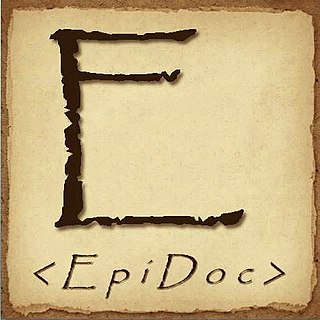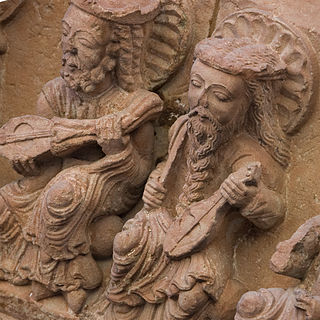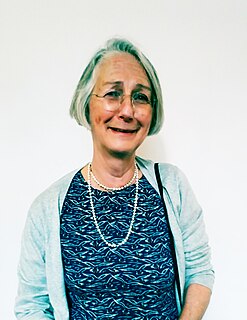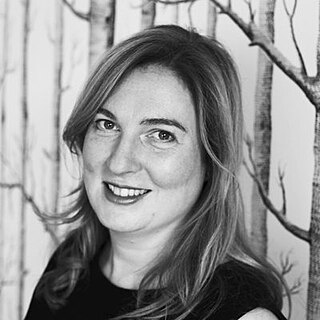The Perseus Project is a digital library project of Tufts University, which assembles digital collections of humanities resources. Version 4.0 is also known as the "Perseus Hopper", and it is hosted by the Department of Classical Studies. The project is mirrored by the Max Planck Society in Berlin, Germany, as well as by the University of Chicago.
Richard John Alexander Talbert is a British-American contemporary ancient historian and classicist on the faculty of the University of North Carolina at Chapel Hill, where he is William Rand Kenan, Jr., Professor of Ancient History and Classics. Talbert is a leading scholar of ancient geography and the idea of space in the ancient Mediterranean world.

EpiDoc is an international community that produces guidelines and tools for encoding in TEI XML scholarly and educational editions of ancient documents, especially inscriptions and papyri.
Digital classics is the application of the tools of digital humanities to the field of classics, or more broadly to the study of the ancient world.
Edith Hall is a British scholar of classics, specialising in ancient Greek literature and cultural history, and Professor in the Department of Classics and Centre for Hellenic Studies at King's College, London. From 2006 until 2011 she held a Chair at Royal Holloway, University of London, where she founded and directed the Centre for the Reception of Greece and Rome until November 2011. She resigned over a dispute regarding funding for classics after leading a public campaign, which was successful, to prevent cuts to or the closure of the Royal Holloway Classics department. She also co-founded and is Consultant Director of the Archive of Performances of Greek and Roman Drama at Oxford University, Chair of the Gilbert Murray Trust, and Judge on the Stephen Spender Prize for poetry translation. Her prizewinning doctoral thesis was awarded at Oxford. In 2012 she was awarded a Humboldt Research Prize to study ancient Greek theatre in the Black Sea, and in 2014 she was elected to the Academy of Europe. She lives in Cambridgeshire.

Kai Brodersen is a contemporary ancient historian and classicist on the faculty of the University of Erfurt. He has edited, and translated, both ancient works and modern classical studies. His research focuses on "Applied Sciences" in antiquity, geography, historiography, rhetoric and ancient jokes, mythography and paradoxography, Septuagint studies and Aristeas, inscriptions and curse tablets, early Greek and Hellenistic history, Roman provinces, women and men in the Ancient World, turning points of Ancient History, history of classical scholarship and reception, often with twist - plus a book for children.
Allen Ross Scaife was a Professor of Classics at the University of Kentucky.

Digital Medievalist is an academic project and community-building organization for those who are interested in the use of computers and computational techniques in the academic field of medieval studies, a sub-field of digital humanities.

The Faculty of Classics, previously the Faculty of Literae Humaniores, is a subdivision of the University of Oxford concerned with the teaching and research of classics. The teaching of classics at Oxford has been going on for 900 years, and was at the centre of nearly all its undergraduates' education well into the twentieth century.

The Friends of Herculaneum Society is a British association founded in 2004 to promote research into the archaeological site of Herculaneum at Ercolano, near Naples, Italy. Its headquarters are in the Ioannou Centre for Classical and Byzantine Studies in Oxford. It is registered as a charity and incorporated as a company under the name "The Herculaneum Society."
Karla Pollmann is the Dean of Arts at the University of Bristol, where she works in both the department of Classics and Ancient History and the department of Religion and Theology. Her research covers Classical to Late Antiquity, patristics, the history of exegesis and hermeneutics, and the thought of Augustine of Hippo and its reception.

Joyce Maire Reynolds, FBA is a British classicist and academic, specialising in Roman historical epigraphy. She is an honorary fellow of Newnham College, Cambridge. She has dedicated her life to the study and teaching of Classics. Reynolds' most significant publications were texts from the city of Aphrodisias, including letters between Aphrodisian and Roman authorities.
The Walking Artists Network (WAN) is an international network dedicated to walking as a critical and artistic practice; it reflects the growth and increased interest in walking art. It is based at the University of East London's Centre for Performing Arts Development and contains a network of over 600 members from across the globe, though predominantly based in the United Kingdom. The network maintains an active email discussion community through JISCmail.

Charlotte Roueché is a British academic who specialises in the analysis of texts, inscribed or in manuscripts, from the Roman, Late Antique, and Byzantine periods. She is particularly interested in those from the Asia Minor cities of ancient Ephesos and Aphrodisias. She is also interested in the interface between digital humanities and classical and Byzantine studies. She is Professor Emerita of Digital Hellenic Studies at King's College London.

The Women's Classical Committee UK (WCC) is a group of academics, students, and teachers who aim to support women in Classics, promote feminist and gender-informed perspectives in Classics, raise the profile of the study of women in antiquity and Classical reception, and advance equality and diversity in Classics.

The Department of Classics is an academic division in the Faculty of Arts and Humanities at King's College London. It specialises in the study of classical languages, literature, thought, religion, art, archaeology and ancient history.

Amy C. Smith is the current Curator of the Ure Museum of Greek Archaeology and Professor of Classical Archaeology at Reading University. She is known for her work on iconography, the history of collections, and digital museology.
Professor Lynette Gail Mitchell is Professor in Greek History and Politics at the University of Exeter. Mitchell is known for her work on ancient Greek politics and kingship.

Melissa Mhairi Terras is a leading international figure in the field of Digital Humanities. Since 2017, she has been Professor of Digital Cultural Heritage at the University of Edinburgh, and director of its Centre for Digital Scholarship. She previously taught at University College London, where she was Professor of Digital Humanities and served as director of its Centre for Digital Humanities from 2012 to 2017: she remains an honorary professor. She has a wide ranging academic background: she has an undergraduate degree in art history and English literature, then took a Master of Science (MSc) degree in computer science, before undertaking a Doctor of Philosophy (DPhil) degree at the University of Oxford in engineering.
Hugh Evelyn-White was a classicist, egyptologist, coptologist and archaeologist. In 1907 he graduated with a degree in classics from Wadham College. He is noted for his many translations of ancient Greek works, most notable being those of Hesiod and the Homeric hymns. He served in the British Army in the Middle East during WWI as an officer but was invalided out in 1917. He worked on the excavations in Egypt and he returned to England in 1922 to work at as a lecturer at the University of Leeds but took his own life in 1924.












